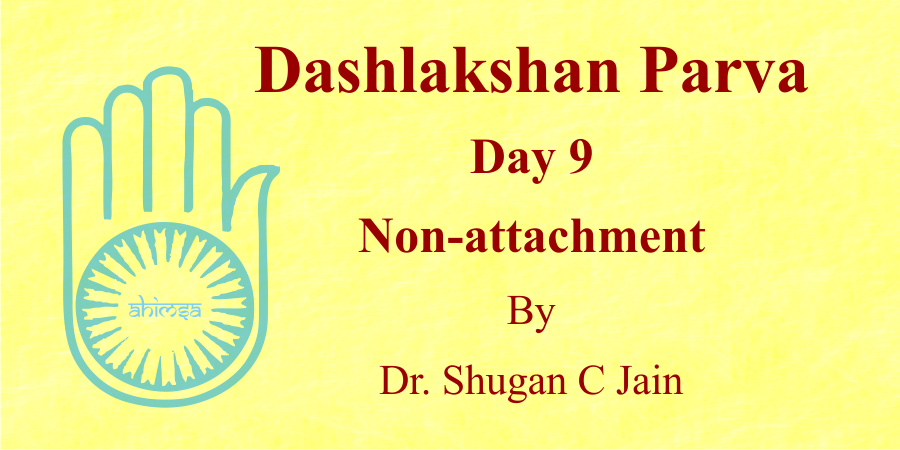Yesterday we talked about giving. Today we will advance further and talk about developing non-attachment to our material possessions. Let us understand the difference between penance, giving up and non-attachment. Penance is to remove our emotions, cravings for external objects; giving-up is to share our possessions with others; while non-attachment means developing a belief that these possessions do not belong to me. I am different from them and my nature is to be happy. Complete non-attachment to them is Supreme non-attachment. The fourth contemplation, called ekatva or contemplation, assists us in developing detachment from possessions, like land, house, silver, gold, wealth, grain, female and male servants, garments and utensils. Possessions also include public position, scholarship, beauty, relatives, high family status and so on. All these cause hatred, disputes and social evils. It says:
I am born alone, and die alone; Thus, I say that nothing external to me is my own.
Alexander, the great, on his death bed called his chief advisers and requested that his dead-body is carried by the physicians treating him; his hands should project out of the coffin on a path to the burial place laid with all the gold/wealth he has amassed to show the world that I came alone, am going alone and even the finest doctors and army etc. cannot protect me from death. The only thing I leave behind is my legacy.
Feeling that all worldly things are really not mine helps control our internal possessions like desires, tainted emotions like anger, arrogance, deceit and greed etc. Developing detachment is the start of our internal journey of being happy forever. The best state of detachment is non-attachment. We try to develop detachment slowly while the ascetics try to develop non-attachment. A person with non-attachment shuns hoarding as nothing belongs to him and nothing is needed. There should be no pleasure in possessions and no pain in the loss of it. Such ideas cause solace and serenity to such a person and thus in this position he can contemplate upon self with mental peace.
In our worldly life, we can equate non-attachment to universal love i.e. treating the whole world as a family. This way all our efforts are directed in making the world a happier place. Is this not the objective of all democratic governments? In the process, we also earn merit (punya) and liberation ultimately.
To practise this in all situations in our life, be it family or school or office or community; this virtue teaches us to stop discrimination at all levels and contribute to the wellness of all without personal expectations. We will be benefited in any way as to be happy is our nature. We will be moving closer to our inner self or be in tune with the God which is the next and last virtue.

